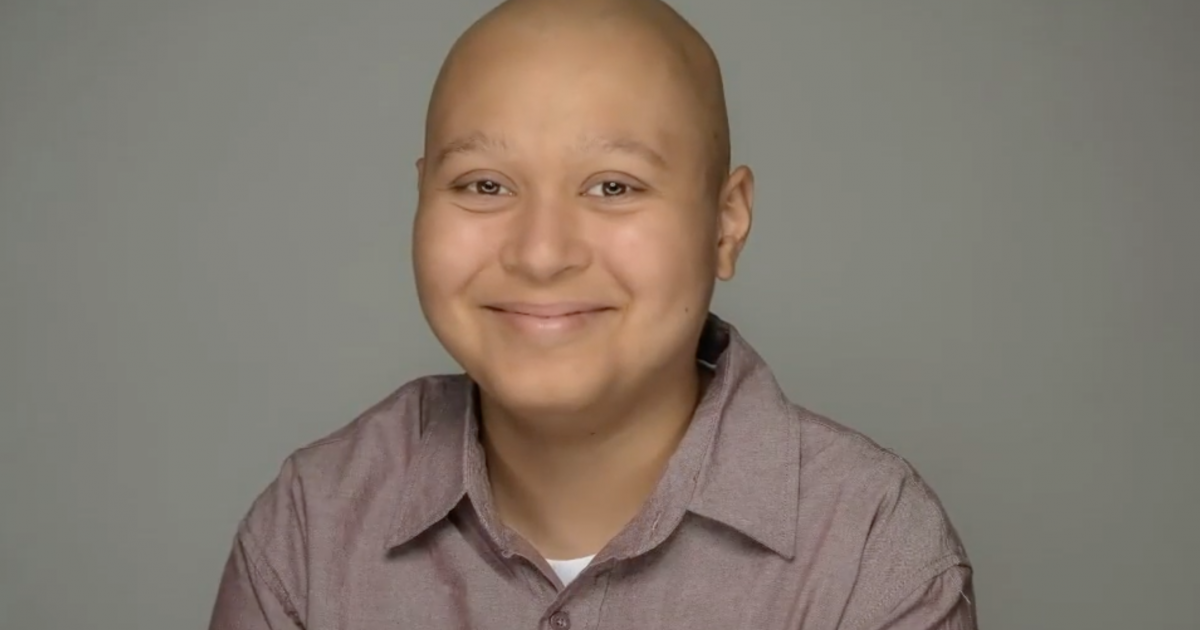Advocating for Your Child
- Yadhira Huerta’s 13-year-old son, Diego, was diagnosed with leukemia after having chest pains while exercising. Now, she’s sharing their story to encourage other parents to pay attention to their children’s health.
- Leukemia is a type of blood cancer. Symptoms vary depending on the type of leukemia, but general symptoms for the disease include: Fever or chills, persistent fatigue, weakness, frequent or severe infections, losing weight without trying, swollen lymph nodes, an enlarged liver or spleen, easy bleeding or bruising, recurrent nosebleeds, tiny red spots in your skin (petechiae), excessive sweating as well as bone pain or tenderness.
- Here at SurvivorNet, we're always encouraging people to advocate for themselves when it comes to cancer and, more generally, health care. But when it comes to a child, the parent must become the advocate and make sure any possible signs of cancer are fully and expeditiously addressed.
Huerta has worked with families faced with pediatric cancer for almost two decades. Even still, she was utterly shocked by her own son’s diagnosis when he was 13.
Read MoreBut issues arose when Diego started complaining about chest pains.
"One day all of a sudden he's struggling to exercise, struggling to breathe, I didn't think much of it," she said. "I obviously didn't think it was cancer, but when my husband took him to the doctor we got the news that he was going to have to see the doctor that I work with, and that was an eye opener for me."
Diego is still receiving treatment , and now Huerta is determined to share his story to encourage parents to always be mindful of their children’s complaints and overall health.
"I do think that we need to listen to our children, if they complain about something or they are not acting like themselves just take them to their pediatrician, to their family doctor and have them seen," she said.
Understanding Leukemia
Leukemia is a blood cancer that develops when the body produces large quantities of abnormal white blood cells. These cells prevent the bone marrow from producing any other type of cell including red blood cells and platelets.
"One cell got really selfish and decided that it needed to take up all the resources of everybody else, and, in doing so, took up space and energy from the rest of the body," Dr. Nina Shah, a hematologist at University of California San Francisco, explained.
What Is a Blood Cancer? How Is It different?
In a more general sense, blood cancer means that your bone marrow is not functioning properly.
"And when your bone marrow doesn't function correctly, it means that you can have something happen to you like anemia," she said. "Or you can have low platelets, which makes it possible for you to bleed easily. Or your immune system is not functioning correctly."
Symptoms of leukemia can vary depending on the type of leukemia. Common signs and symptoms of the disease include:
- Fever or chills
- Persistent fatigue, weakness
- Frequent or severe infections
- Losing weight without trying
- Swollen lymph nodes, enlarged liver or spleen
- Easy bleeding or bruising
- Recurrent nosebleeds
- Tiny red spots in your skin (petechiae)
- Excessive sweating, especially at night
- Bone pain or tenderness
Advocating for Your Child
Here at SurvivorNet, we always encourage people to advocate for themselves when it comes to cancer and, more generally, health care. When it comes to a child, the parent must become the advocate just as we saw in the case above.
The Impact of a Childhood Cancer Diagnosis on the Whole Family Jayne Wexler Shares Her Story
And even if you're called 'pushy' or people dismiss the concerns you have for your child, it's important to remember that you never know when speaking up about a seemingly unproblematic issue can lead to a very important diagnosis cancer or otherwise.
"Every appointment you leave as a patient, there should be a plan for what the doc is going to do for you, and if that doesn't work, what the next plan is," Dr. Zuri Murell, director of the Cedars-Sinai Colorectal Cancer Center, told SurvivorNet in a previous interview. "And I think that that's totally fair. And me as a health professional that's what I do for all of my patients."
Be Pushy, Be Your Own Advocate… Don't Settle
In a previous interview with SurvivorNet, April Knowles also talked about self advocacy and explained how she became a breast cancer advocate after her doctor dismissed the lump in her breast as a side effect of her menstrual period. Unfortunately, that dismissal was a mistake. Knowles was diagnosed with metastatic breast cancer at age 39. She said the experience taught her the importance of listening to her body and speaking up when something doesn't feel right.
I Wanted My Doctor To Like Me, Then He Missed My Breast Cancer
"I wanted my doctor to like me," she said. "I think women, especially young women, are really used to being dismissed by their doctors."
Figuring out whether or not you have or your child has cancer based on possible symptoms is critical because early detection may help with treatment and outcomes. Seeking multiple opinions is one way make sure you are or your child is getting the proper care and attention. You should also try to remember that not all doctors are in agreement. Recommendations for further testing or treatment options can vary, and sometimes it's essential to talk with multiple medical professionals.
Learn more about SurvivorNet's rigorous medical review process.


